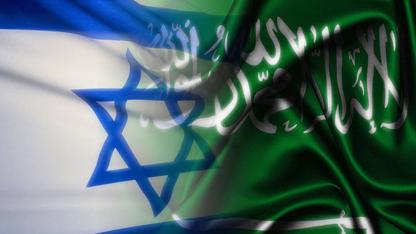Israeli Analyst: Saudi Arabia Is Opening a New Front Against Iran, and Wants Israel to Do Its Dirty Work
Yamanyoon- 12 Nov 2017
ِAmos Harel
The Sunni kingdom is trying to shift the battlefield from Syria to Lebanon. This may lead to a chain reaction.
Late last week, in under 24 hours, the Saudi royal house set off a string of shocks within the kingdom and across the Middle East, making a set of moves that escalated the battle with Iran over regional hegemony.
The complete Saudi plan, if it exists, has not been revealed yet. However, the series of developments has raised the level of nervousness in its neighbors’ capitals, provoking much guesswork regarding the Saudis’ next moves.
First came the announcement that Lebanon’s Prime Minister Saad Hariri was resigning. At first it was explained as deriving from his concerns about an Iranian-inspired Hezbollah plot to assassinate him. As the days passed, the resignation seemed more like a Saudi dictate, stemming from Saudi Arabia’s displeasure at the way Hariri was compelled to cooperate with Hezbollah in Lebanon’s government.
A few hours after the initial announcement, the Saudis announced a wave of arrests of princes and wealthy businessmen, on suspicion of corruption. As the princes were being detained under five-star-hotel conditions at the Ritz Carlton in Riyadh, a strange aerial accident took place in the southern part of the kingdom. The next day it emerged that a prince had tried to escape Saudi Arabia by air, using a helicopter which was shot down by the Saudi air force. The nine passengers and crew on board were killed. In the meantime, Yemen’s Houthi rebels, fired a missile at Riyadh’s airport. In retaliation, Saudi Arabia imposed a land and naval blockade on Yemen.
These weren’t the only developments related to Saudi Arabia this week. U.S. President Donald Trump tweeted words of support for steps taken by King Salman and by the kingdom’s strongman, Crown Prince Mohammad bin Salman. Trump’s son-in-law Jared Kushner visited Saudi Arabia and Israel several days before the wave of purges took place. In Israel, the Foreign Ministry disseminated a position paper among foreign embassies following Hariri’s resignation, TV Channel 10 reported. This was totally congruent with the official Saudi version of events, which put the blame for the crisis in Lebanon squarely at Iran’s feet. Mahmoud Abbas, head of the Palestinian Authority, embarked on an urgent visit to Egypt and Saudi Arabia. Brussels received a surprising request that a senior Saudi delegation come on a visit next week to discuss methods of combating terror. The Saudis were responding to an invitation which had been issued by the Europeans ten months earlier.
Is there one line connecting these dots, as well as one linking it to the crisis deliberately-generated by Saudi Arabia, the United Arab Emirates and Egypt with regard to fractious Qatar last summer? Is there a link between these issues and the reconciliation between the Palestinian Authority and Hamas, which began to be implemented in Gaza last week, led by Cairo? The conventional wisdom among intelligence officials and academic scholars is that these are steps designed to consolidate the influence of Mohammad bin Salman, ahead of the future transfer of power from his 82-year-old father into his hands.
It’s unclear if the Saudis will necessarily make do with these moves. The royal house is particularly close to the Trump administration and Saudi Arabia was one of the few countries, along with Israel, which enthusiastically welcomed Trump’s election, this time last year. Over the past year there have been a growing number of reports around the world of increasing diplomatic coordination between Riyadh and Jerusalem, accompanied by cooperation in intelligence matters. Israel and the Saudis see Iran as a common enemy, and both are frustrated at the West’s incompetence in dealing with Iran’s growing influence in what is known as the “Shi’ite Crescent” in the region.
The string of events, starting with the Qatari crisis last summer, strengthens the assumption that this is part of a wider Saudi move, an ambitious attempt to reach a new regional order. On the diplomatic front this is linked to the internal Palestinian reconciliation, led by Cairo but which also requires financial backing by the Saudis and the Emirates. This won’t be all, apparently. The defense establishment and political circles in Israel are preparing for the likely possibility that the Trump administration will soon present Israel and the Palestinian Authority with a new document, in an attempt to jumpstart the stalled peace process. Such a move may be pursued in a coordinated way between the United States and the Saudis. Saudi ambitions may have other results as well. An article in Haaretz this week by former U.S. ambassador to Israel Dan Shapiro asked whether the Saudis were pushing Israel into a war with Hezbollah and Iran.





